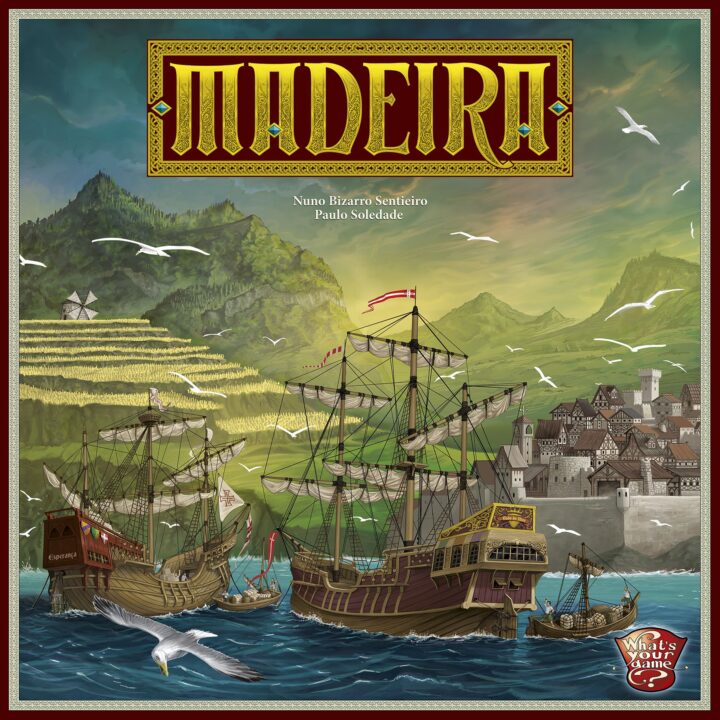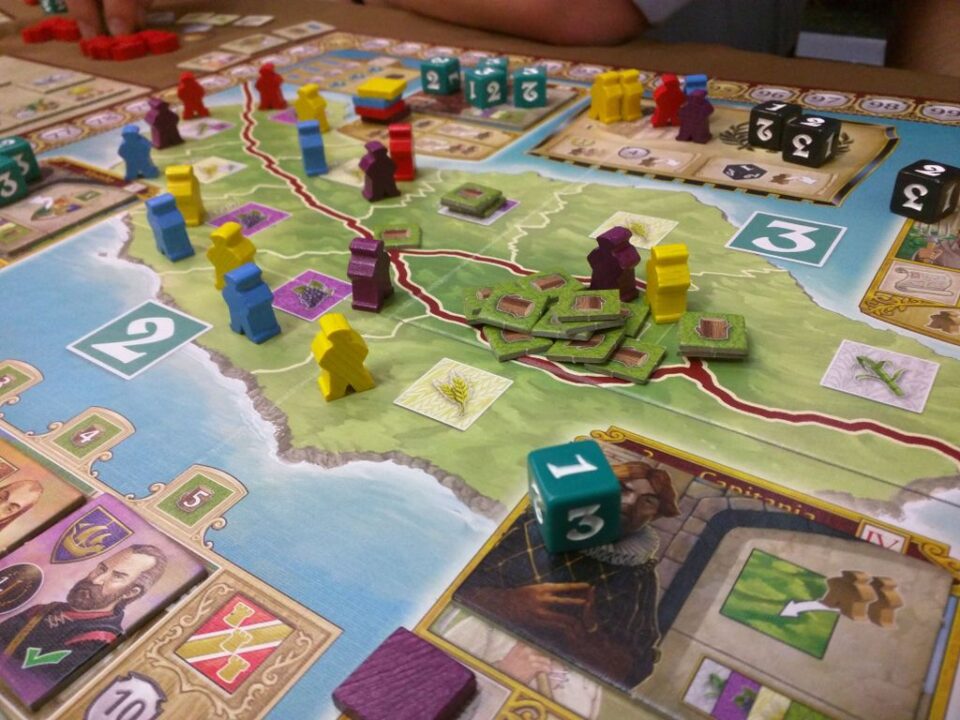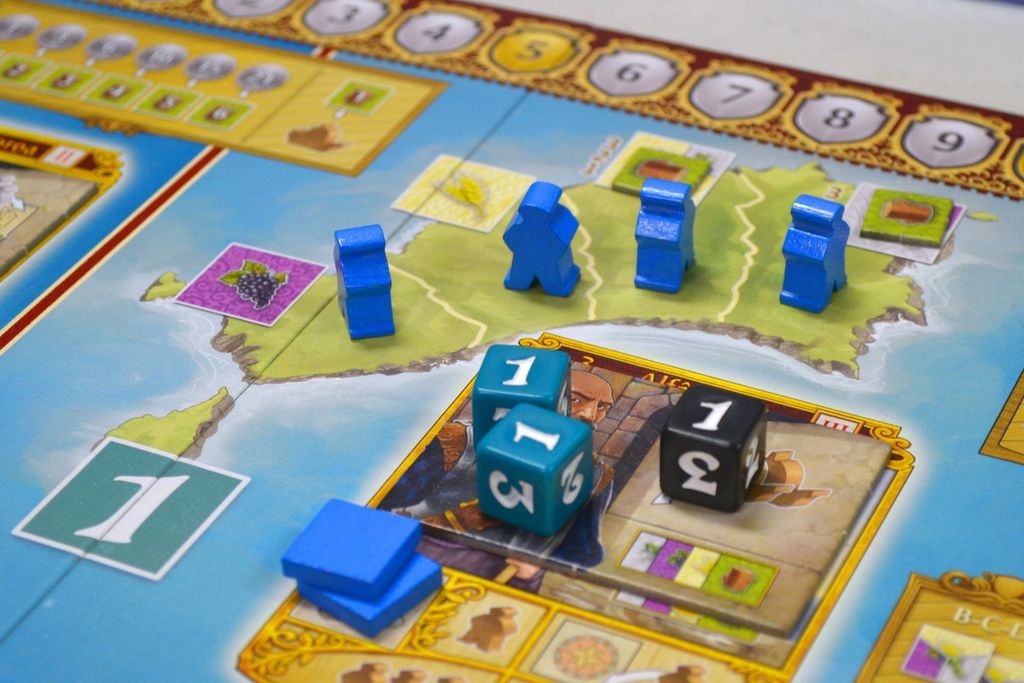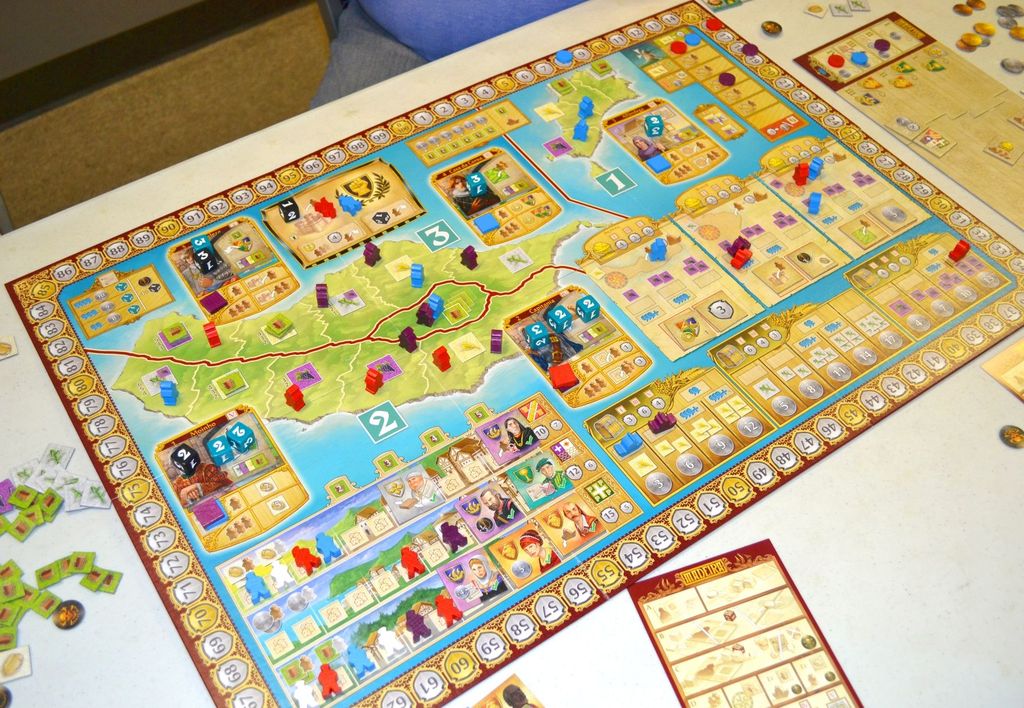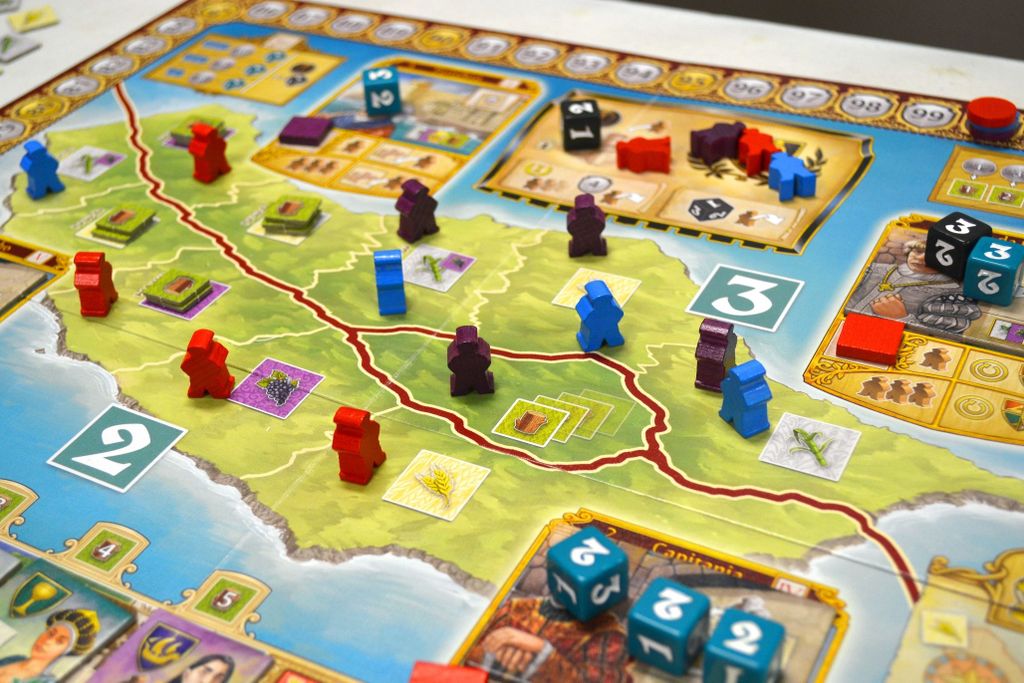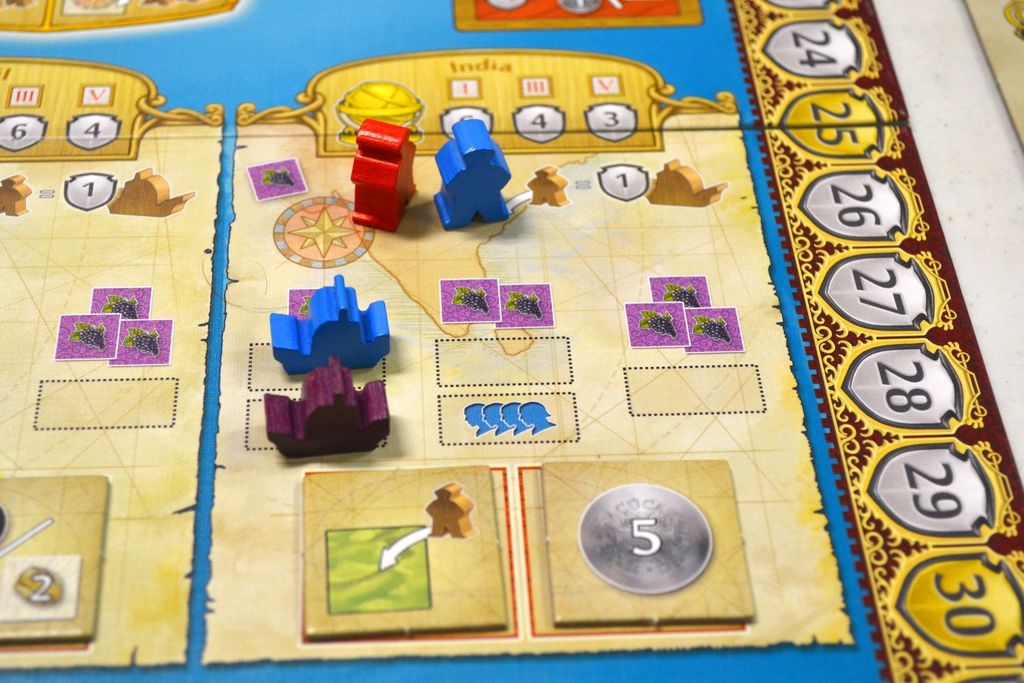Overview
Hey there, game lovers! Jamie here, bringing you a fresh take on the intricate island of strategy, Madeira. In this review, we’ll chop through the dense jungle of game mechanics, from the strategic mountains of resource management to the balanced fields of fair play, all the way down to the sunny shores of replay value. Grab your explorers’ hats; we’re setting sail to discover if Madeira deserves a spot on your game shelf!
How It Plays
Ready to tackle the complexities of Madeira? This game is all about making the best out of your resources while keeping an eye on your rivals. Let’s break down the basics.
Setting up
First things first, lay out the board and give each player their set of pieces in their chosen color. This includes ships, workers, and some initial resources to get you started. The game board is a map of Madeira, and you’ll place various tokens and tiles on their respective spots. Everyone picks a starting position, and then we’re good to go. My friends and I usually argue over colors, but I always end up with blue. Not sure why, but it’s become a running joke!
Gameplay
Gameplay in Madeira is a turn-based affair, where you’ll be juggling between harvesting resources, occupying colonies, and trading on the market to earn points. You’ve got workers to manage, and you need to decide where to assign them for the best output. Don’t forget about feeding them; a hungry worker is a slow worker! Each turn, you’ll choose actions that allow you to expand your territory, build your economy, and influence the guilds. The choices are tough, and every game plays out differently depending on what you and your friends decide to prioritize.
Winning the game
The endgame is where things get really spicy. After a set number of rounds, the game ends, and points are tallied up. You get points from a variety of sources like completed missions, your standing with the guilds, and your economic achievements in the colonies. The player with the most points wins. Trust me, the lead can change hands in the blink of an eye, making for some nail-biting finishes!
Want to know more? Read our extensive strategy guide for Madeira.
Mastering Complex Strategies in Madeira
When you sit down to play Madeira, you’re not just playing a game; you’re embarking on a brain-bending journey of strategic depth. This isn’t your grandma’s board game where luck will see you through. Nope, Madeira demands you plan, adapt, and strategize like a true king of the island. Every move feels like a high-stakes decision, from choosing the right roles to maximizing your actions on the crowded board.
The beauty of Madeira lies in its complexity. You’ll find yourself constantly torn between boosting your economy, sailing to new shores, or keeping the king happy to gain precious favors. And let’s not forget about the pirates! Yes, even in this game of intense strategy, pirates are waiting to throw your plans into chaos. It’s this intricate dance of decisions that makes Madeira a standout in the world of strategy board games.
But what’s strategy without resources? Stick around, because next, we’re diving into the art of resource management and optimization in Madeira.
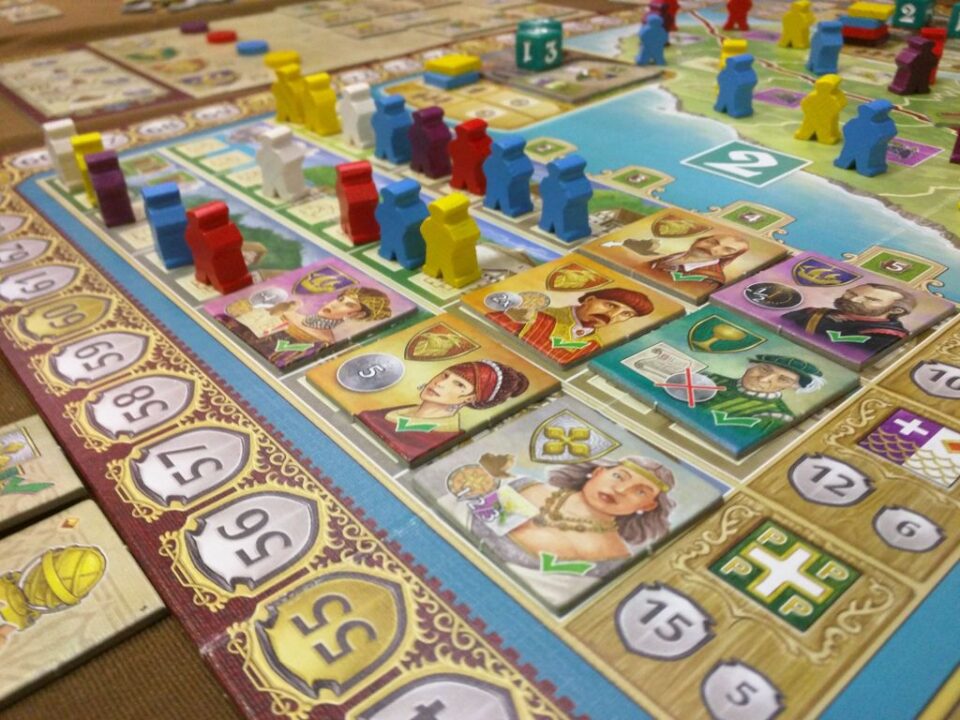
Mastering Resource Management in Madeira
When it comes to Madeira, it’s all about the art of juggling your resources. This game throws you into the deep end of managing wood, wheat, sugar, and more. I learned the hard way that winning is not just about having resources, but knowing when and how to use them. Timing is crucial. Use your resources too early, and you might run out when you really need them. Wait too long, and you might miss your chance to make that game-winning move. The secret sauce? Balance. You’ve got to keep an eye on what you need now versus what you’ll need later. It’s like planning a dinner party while already cooking it.
Now, let’s smooth sail from resource management to exploring how Madeira keeps all players on an even keel in the next section: Game balance and fairness.
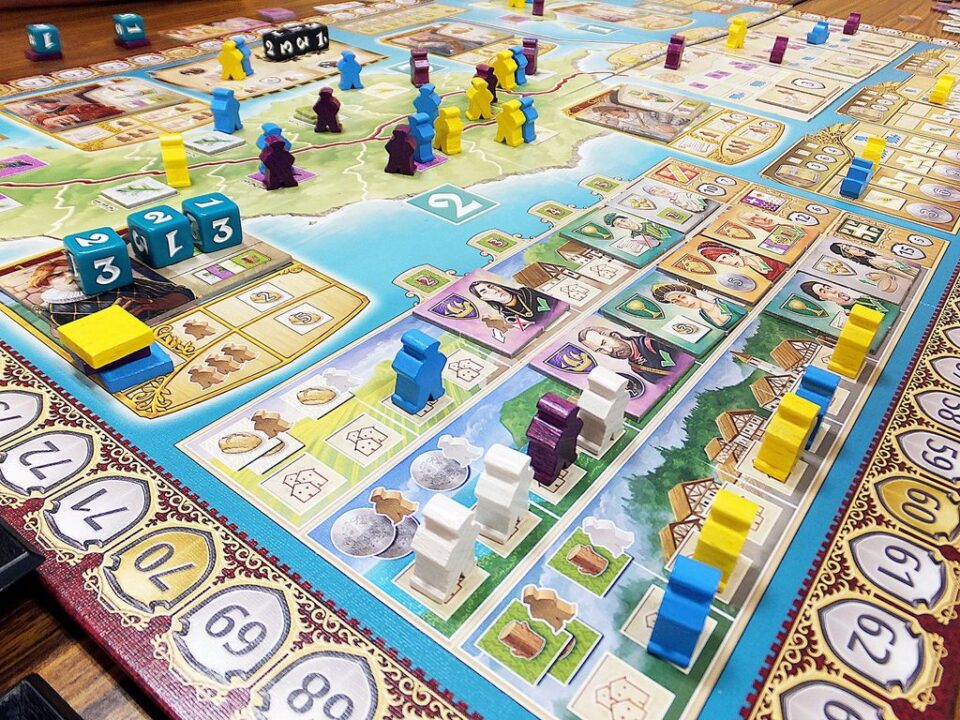
The Balancing Act of Madeira
When it comes to game balance and fairness, Madeira really sets the bar high. It’s like the Goldilocks of board games – not too hard, but not too easy, getting it just right for everyone at the table. The creators must’ve been tightrope walkers in a past life because they’ve balanced this game on the fine line between challenge and fun. Every player has a fair shot at victory, making each game a nail-biter till the end. It’s smart design ensures no one strategy dominates, forcing players to adapt and think on their feet. You won’t find any runaway leaders here, just a group of friends fiercely but fairly competing to win.
And speaking of competition, let’s march forward to discuss the enduring appeal of Madeira in terms of its replay value and game length.
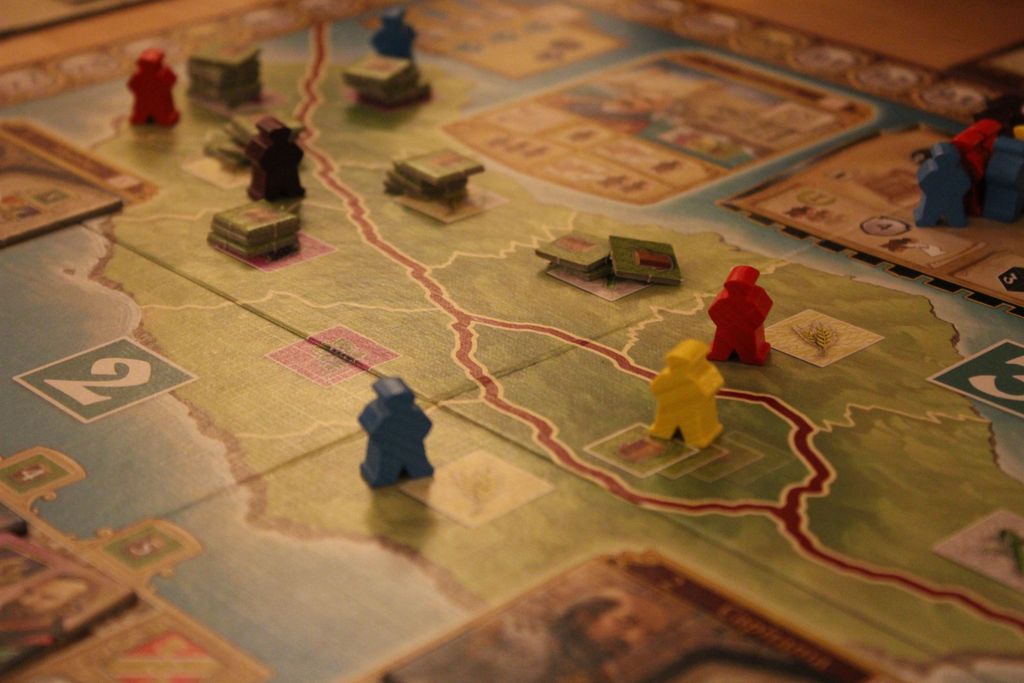
Exploring Replayability and Duration in Madeira
Every good board game review must touch on replay value and game length, especially for strategy games like Madeira. Replay value in Madeira is through the roof. Why? The game’s complex strategy options, varying player powers, and different scoring paths mean no two games are the same. You always find new strategies to try, which keeps the game fresh and exciting even after multiple sessions.
The game length of Madeira is something to consider. A full game can last between 2 to 3 hours, depending on the number of players and how much analysis paralysis kicks in. For some, this is perfect for a deep and immersive board game night. For others, it might be a bit lengthy. But trust me, the time flies when you’re deep in the strategy of this game.
So, do I recommend Madeira? Absolutely. If you love strategy games that offer great depth and replayability, Madeira is a must-have in your collection.
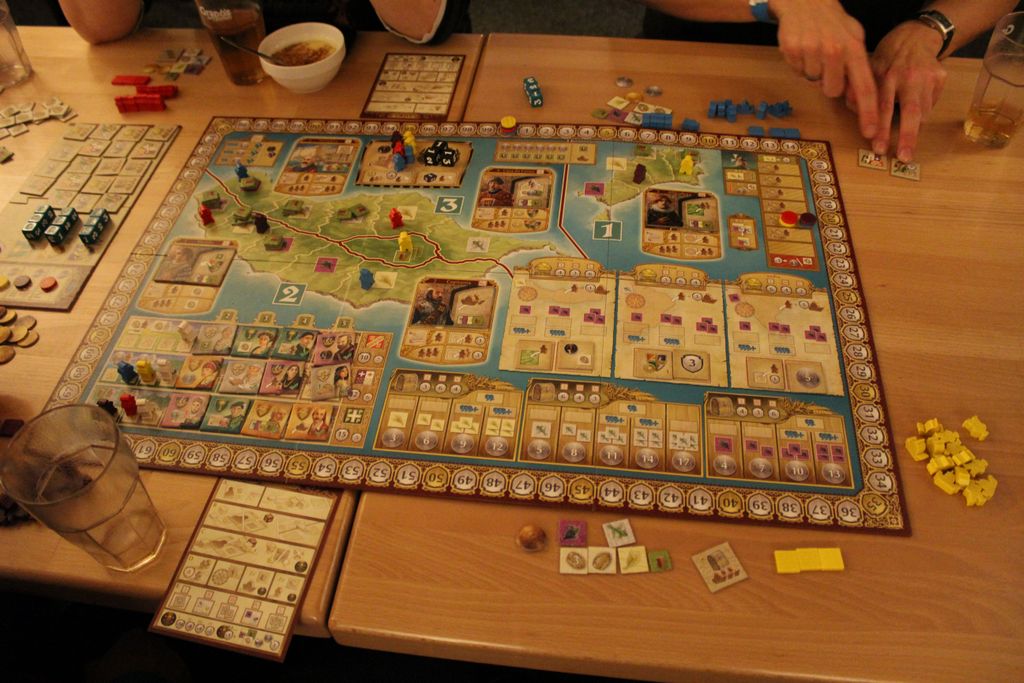
Conclusion
Alright, folks, we’ve sailed around the complex island of Madeira, navigated through its deep strategic waters, and docked at the final thoughts harbor. After numerous game nights, it’s clear Madeira is a heavyweight in the strategy board game arena. Its balance between complex strategies, resource management, and the almost Zen-like state you need to achieve to optimize your moves, makes it shine. The game’s fairness ensures that every player, regardless of their starting position, has a fighting chance to claim victory. And don’t get me started on the replay value; it’s like the game box is a portal to an alternate universe where every session unfolds in a new, unexpected way, despite the 2-3 hour commitment each game demands.
In wrapping up this review, Madeira has proven itself to be a jewel in the collection of any strategy game lover. It checks all the boxes for what makes a game engaging, challenging, and most importantly, fun. Just remember, it’s not for the faint of heart or those short on time. But if you’re looking for a game that challenges your mind and rewards your strategic thinking, Madeira is a solid choice. Sail on, gamers, sail on!

